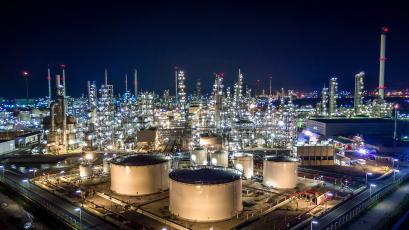Ethylene, a key building block in plastic and vital to our country’s manufacturing industry, has been thrust into the spotlight due to Hurricane Harvey’s impact on its production process. So, what exactly is ethylene and how does it impact manufacturing and our everyday lives?
Using oil or natural gas as a feedstock, petrochemical plants use the cracking process to extract ethylene. Oil or natural gas is heated with steam to crack apart molecular bonds, and the ethylene gas emitted is separated and sent to processing plants.
These plants can transform the ethylene into chemical compounds and plastics, which manufacturers use to produce many of the in-demand products relied upon in everyday life. As detailed by Bloomberg, Ethylene is developed into four different compounds, which in turn are developed into several household and other products:
- Polyethylene (Plastics) – used to make food packaging, bottles, bags, and other plastics-based goods.
- Ethylene Oxide / Ethylene Glycol – becomes polyester for textiles, as well as antifreeze for airplane engines and wings.
- Ethylene Dichloride – this, in turn, becomes a vinyl product used in PVC pipes, siding, medical devices, and clothing.
- Styrene – synthetic rubber found in tires, as well as foam insulation
The vast use of ethylene is what makes it the “World’s Most Important Chemical.” As demand has risen, U.S. production of ethylene has steadily increased since 2008 and is now viewed as a leading indicator of growth in the manufacturing sector.

Facilities are working diligently to bring these plants back online quickly and safely to limit supply-chain disruptions. For the most up to date information on plant reopenings, please visit PetroChem Wire.


